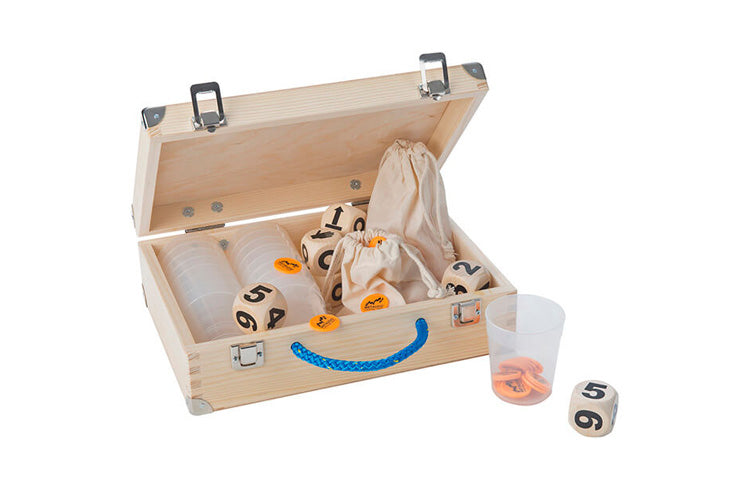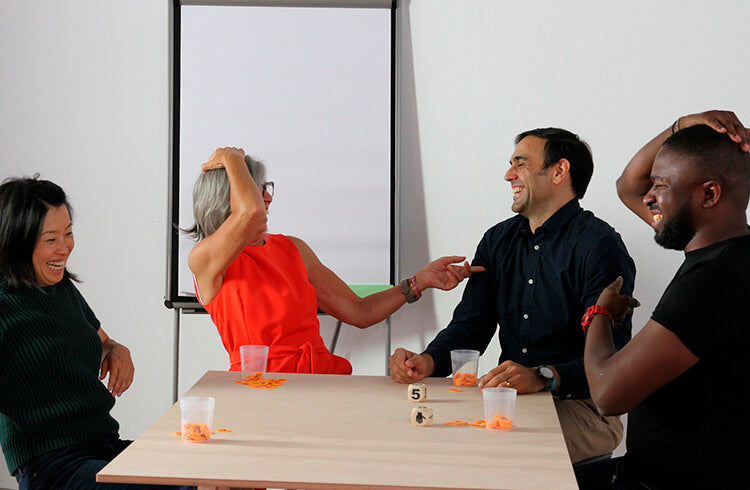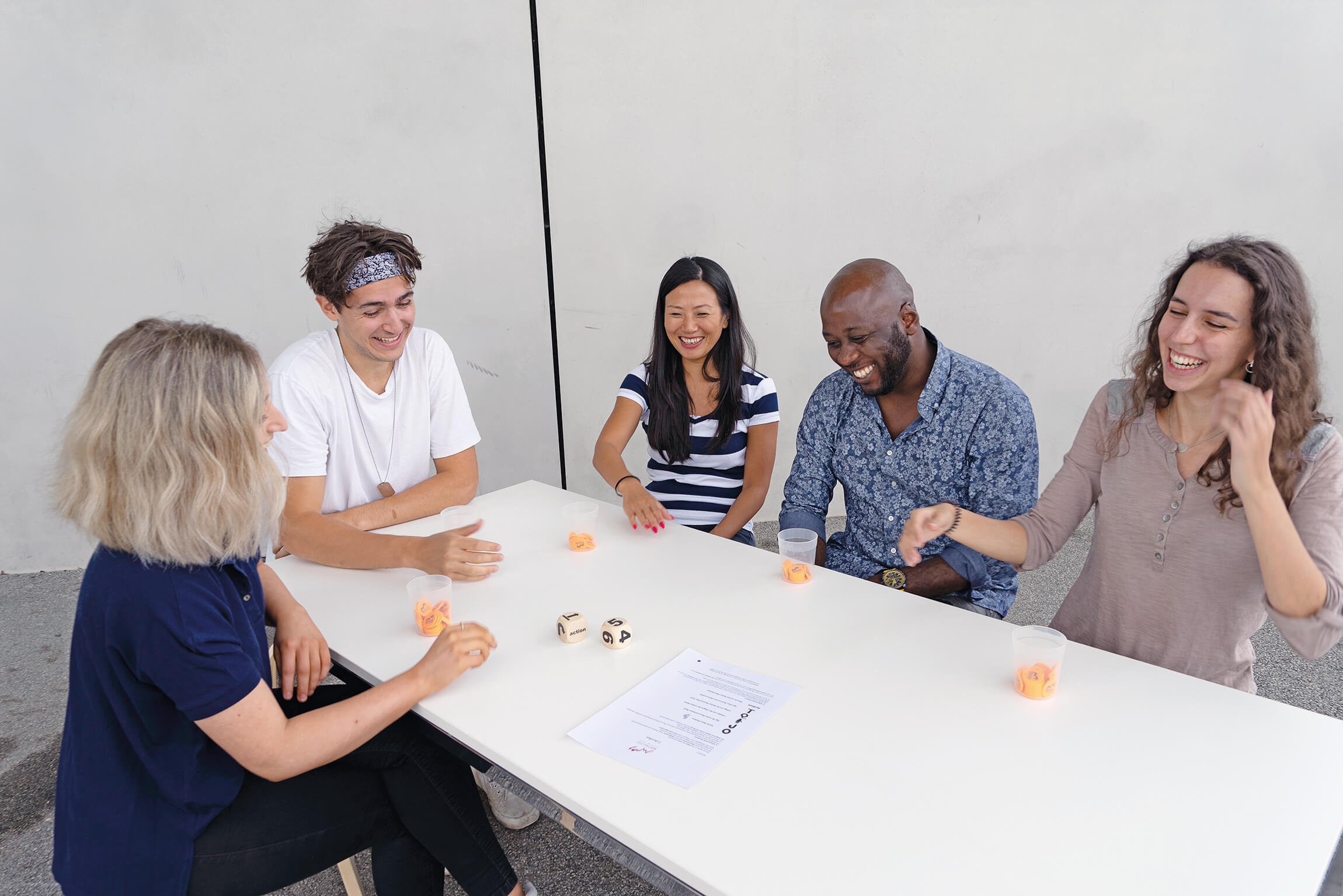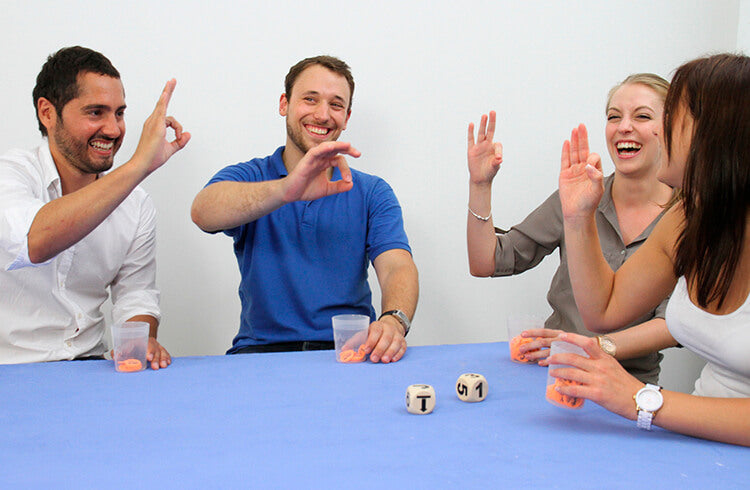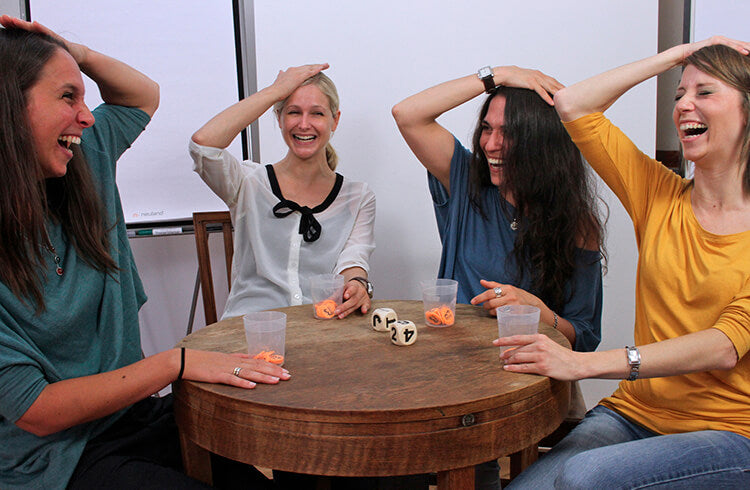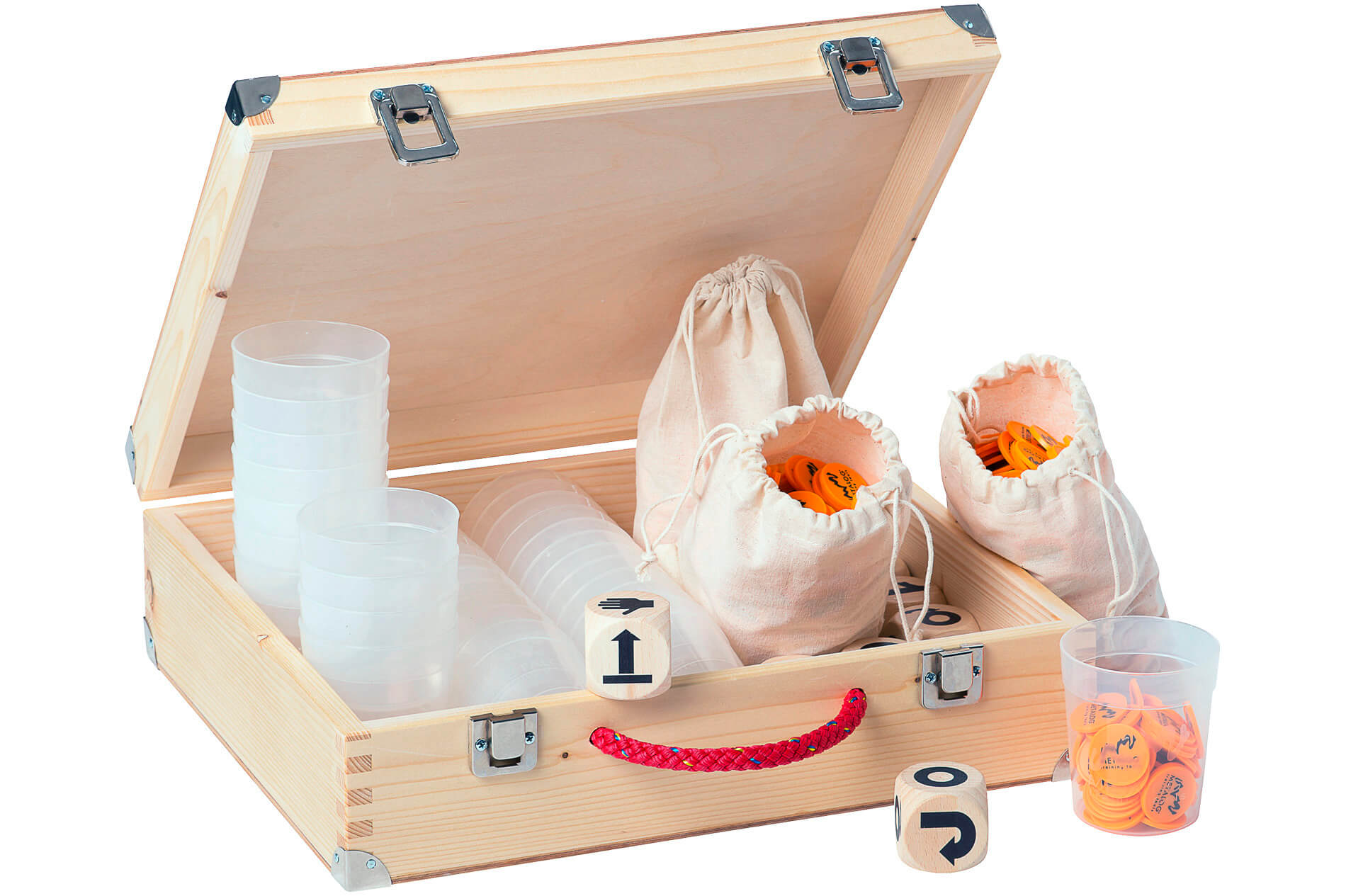- No products in the cart.

For Nicola Garratt-Gnann, CultuRallye is a fun and lively way to introduce the topic of culture when she onboards international employees at Germany's global companies
It's never easy for foreign nationals to uproot their families and move to a different country for a new position. They have to change nearly every facet of their lives – from learning an unfamiliar corporate culture to finding housing, schools and even health care providers for their families. Yet the sooner they adapt to these significant changes, the sooner they can integrate and settle into life as residents in their host countries.
Fortunately for some international employees in Germany, they have the support of trainer Nicola Garratt-Gnann. A specialist in intercultural training, Garratt-Gnann has developed a 1-2 day integration seminar for newcomers to Germany's global companies.
The idea is for the new employees and their partners – who come from all over the world – to gather and talk with each other about their relocation experience and exchange ideas for how to adjust. They attend the seminar several weeks after arriving in Germany so they have plenty to share.
Each round of the game is like a new phase of relocation
To help them start, Garratt-Gnann turns to a role play exercise using CultuRallye. The dice game is ideal for teaching people how to accept new rules, norms and practices because the rules change throughout the activity. It's a fun, interactive way to introduce the topic of culture and culture shock, and Garratt-Gnann uses the activity as metaphor for the international relocation process to kick off her seminar. Participants play the role of emigrants and she is their travel companion.
For the first round, the group is metaphorically still at home, but preparing to leave. She divides the group into teams of four and gives each team a set of rules outlining the symbols and actions on the dice used during the game. The teams can talk at first to learn the symbols and practice the actions on each die, but are quickly limited to nonverbal communication such as gestures and facial expressions. Eventually, she takes the rules away too, so only those who have memorized them will succeed. This mirrors the role of language fluency – or lack thereof – in cultural integration.
Relating the experience to real life – who is adapting well?
The first round commences and the person on each team who is best at understanding the symbols and performing the actions the fastest emerges as the winner. For the next round, the winners are all sent to other teams to 'start over in a foreign country.'
“This means that those participants who have interacted most successfully in their group move on to another group that is 'foreign' to them, where they are also expected to interact as successfully as possible,” Garratt-Gnann explains.
“Of course, this does not work and – in line with the game plan – confusion ensues. Instead of the usual behaviors, the corresponding symbols are now followed by completely different, completely unexpected and incomprehensible actions. 'Just like it often is in foreign countries,' I explain with a wink."
The number of rounds Garratt-Gannan leads depends on the unique dynamics of each seminar, but the more often people move between teams ('countries'), the more the rules change, and the more challenging it becomes for each new team to reach agreement.
"CultuRallye has proven particularly effective as a kick-off for training seminars as well as for warming up to the topic. What I appreciate about it is that it allows me to work interactively right from the start. The participants immediately start talking to each other, and get to know each other in a relaxed atmosphere."
Confusion and chaos are great conversation starters
The confusion, chaos and genuine behavior CultuRallye elicits from participants gives Garratt-Gannan rich material to work with during the reflection. During the activity, she carefully observes how everyone responds to each new step of the 'relocation process,' noting in particular how they react to uncertainty and whether they seek help as newcomers or remain silent. Afterward, she invites people to describe their impressions, prompting them with questions such as:
- Who had to adapt to whom?
- Did the rules of the 'host country' or your own country apply?
- What obstacles did you have to overcome?
- Should you reject what you don’t understand? Or question actions?
- Is it better to wait and see? Or actively intervene and defend your rules?
- Were you granted the right to individual, authentic behavior?
- Did you eventually feel 'integrated' at some point?
It's easy for the group to relate the CultuRallye activity to their own experience in Germany, with its set of unfamiliar norms and pratices, and the conversation flows naturally.
In one session, an Indian participant told Garratt-Gnann that she felt very successful because she adapted quickly and simply said nothing. It was not until the third round that her fellow participants noticed that other teams' instructions were different.
In another session, a man from Mexico came up with an original solution, which was to ask everyone on his new team to document their actions for all to see. Then everyone just had to act according to their own rules, with only the speed of their actions counting for success.
"CultuRallye is an excellent tool for kicking off integration training in an interactive and entertaining way," says Garratt-Gnann. "It stimulates curiosity about new things, because many participants wonder at the beginning what insights they might gain from the activity. After the game, everyone is positively surprised. Many participants have told me that CultuRallye made them more aware of the issue of culture. They now see more clearly what has made them who they are and have a better understanding of the opportunities that their time in Germany offers, not only professionally but also personally."
About the trainer
Nicola Garratt-Gnann is a specialist in intercultural training in Tübingen, Germany.
Connect with Nicola at IMB Interkulturelle Management Beratung.

